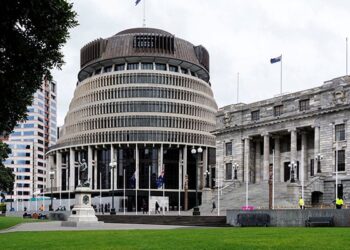Select Language:
Nepal’s Prime Minister KP Sharma Oli resigned on Tuesday amid widespread protests sparked by a social media ban, which resulted in clashes between demonstrators and police. The protests turned violent, leaving 19 dead and over 100 injured when police used tear gas and rubber bullets to disperse crowds attempting to storm the parliament building. Following the violence, the government lifted the social media restrictions.
The mounting unrest is the most severe in Nepal in decades, a nation nestled between India and China that has faced ongoing political instability and economic challenges since the monarchy was abolished in 2008. Oli’s resignation was confirmed by his aide, Prakash Silwal, signaling fresh political turmoil for the fragile country.
Earlier in the day, Oli convened a meeting with political parties, emphasizing the need for peaceful dialogue to address issues and condemning violence. Still, protests persisted in Kathmandu, with demonstrators setting tires ablaze, throwing stones at police, and confronting officers in riot gear. Some protesters even set homes of politicians on fire, and reports indicated that the military had evacuated certain ministers from danger.
Supporters of the protests, mainly young people frustrated with the government’s inability to combat corruption and improve economic prospects, gathered from nearby regions, marching toward the capital in solidarity. Witnesses reported the burning of political residences and the involvement of military helicopters in safety operations.
The chaos has caused disruptions at Kathmandu’s main international airport, with limited visibility due to smoke from nearby fires, halting flight operations. Protest organizers have described these demonstrations as driven by Generation Z, highlighting the widespread dissatisfaction among Nepal’s youth.
Throughout the day, various international embedded media and social media platforms have continually updated, showcasing the intensity of Nepal’s political crisis and the ongoing protests demanding change.







